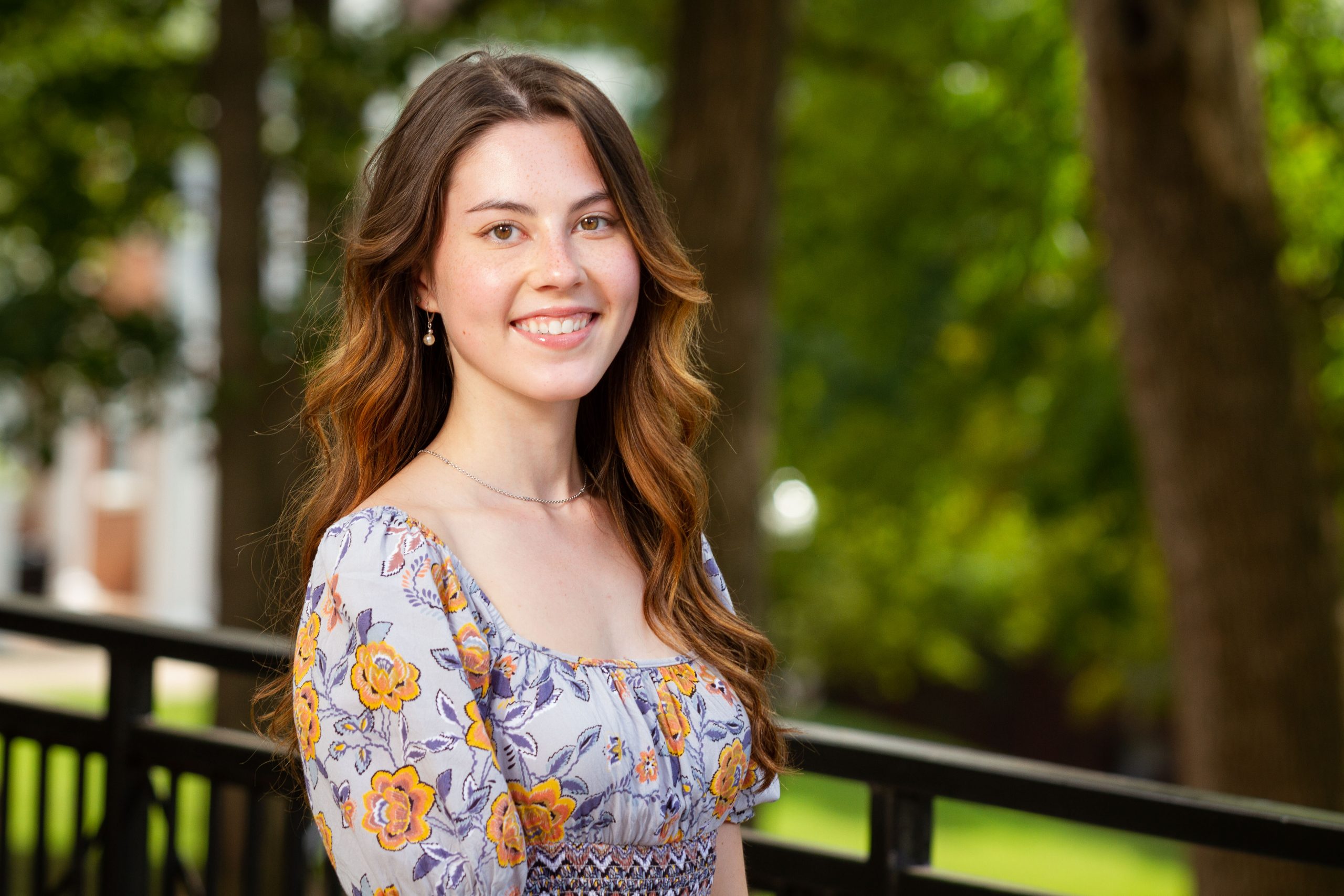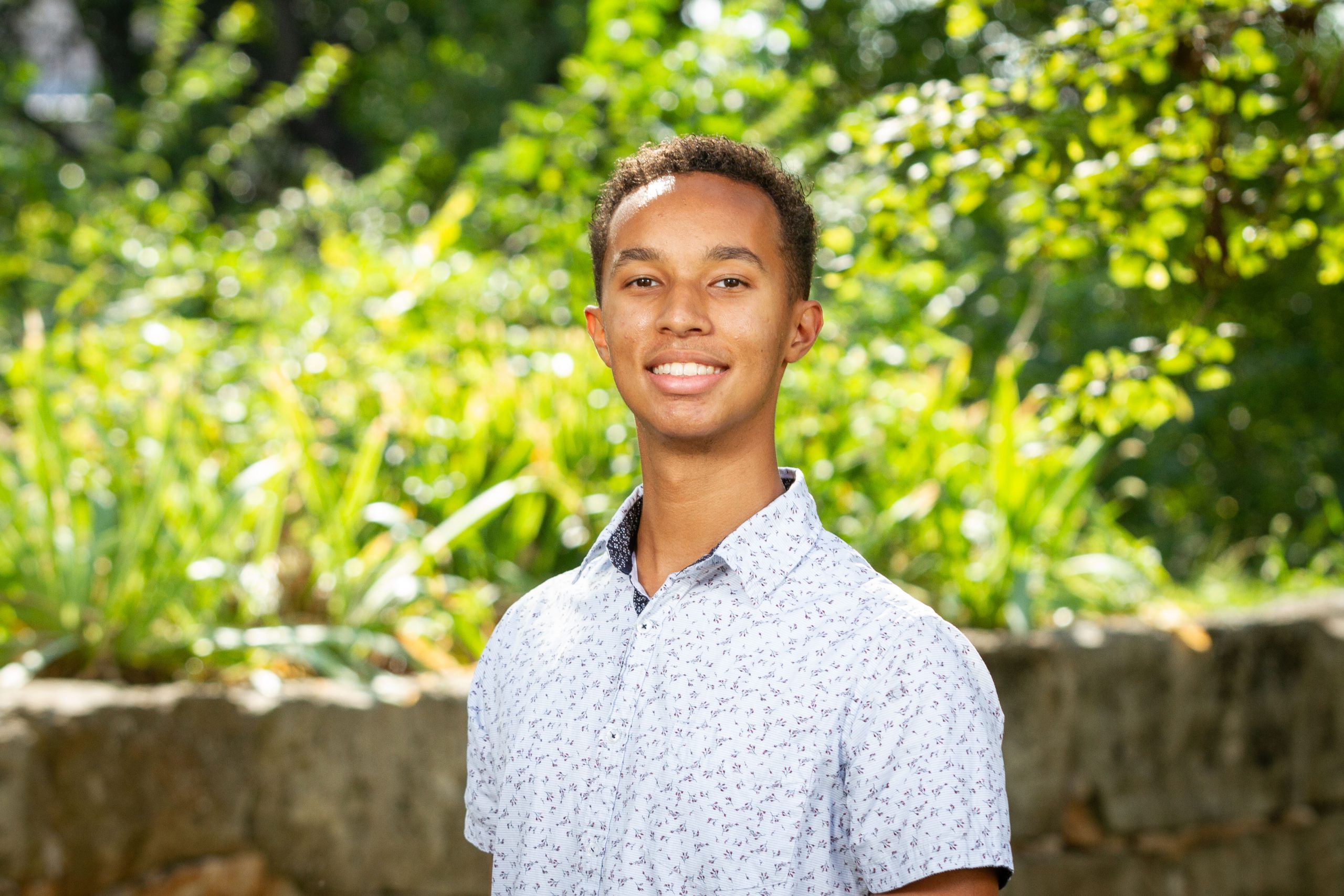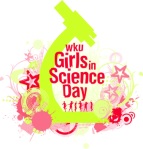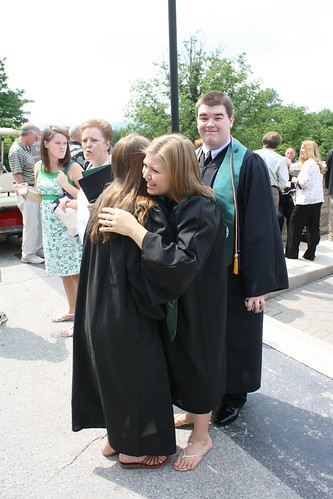 Celebration of Commencement Weekend at Western Kentucky University continued on Saturday as The Carol Martin Gatton Academy of Mathematics and Science in Kentucky honored its third graduating class of high school seniors.
Celebration of Commencement Weekend at Western Kentucky University continued on Saturday as The Carol Martin Gatton Academy of Mathematics and Science in Kentucky honored its third graduating class of high school seniors.
Fifty-one students representing 37 counties from across the Commonwealth were recognized during the ceremony at the newly renovated Van Meter Auditorium. The ceremony not only celebrated the significant accomplishments of the program and its graduates over the last two years but also looked toward the infinite possibilities ahead.
Gatton Academy Executive Director Dr. Julia Roberts expressed the day’s events were both a celebration of the Class of 2010’s personal accomplishments and a starting point toward their work of creating a better Kentucky.
“Kentucky’s future is brighter today because you are graduates of the Gatton Academy of Mathematics and Science,” Roberts said. “What wonderful contributions you will make in the fields of mathematics, science, engineering and technology. I look forward to hearing about your leadership in STEM fields in Kentucky and beyond in the not-so-distant future.”
WKU President Dr. Gary Ransdell lauded not only the graduates’ academic accomplishments but also the instruction they have received in becoming better leaders.
“I hope you’ve understood those lessons and values that allow you to command leadership positions,” he said. “And I hope you take with you the motto of this university: The spirit makes the master. I hope wherever you may go, that path leads back to Kentucky.”
Chris Guthrie, President of Trace Die Cast, Inc., delivered the commencement address. Guthrie also encouraged the graduates to enjoy a wide variety of life experiences; however, he advised them to make a difference in their state.
“We have a great state, and I challenge you to see more of it,” he said. “When the time comes to start your business, your medical practice or research institute, come back to Kentucky. We need your talent. Go out and experience great things and come back and help us build a better Commonwealth.”
Over the past two years, Gatton Academy students have taken advanced coursework in mathematics, science and other subjects at WKU in fulfillment of high school requirements and the Gatton Academy curriculum. In all, students have each earned more than 60 hours of college credit.
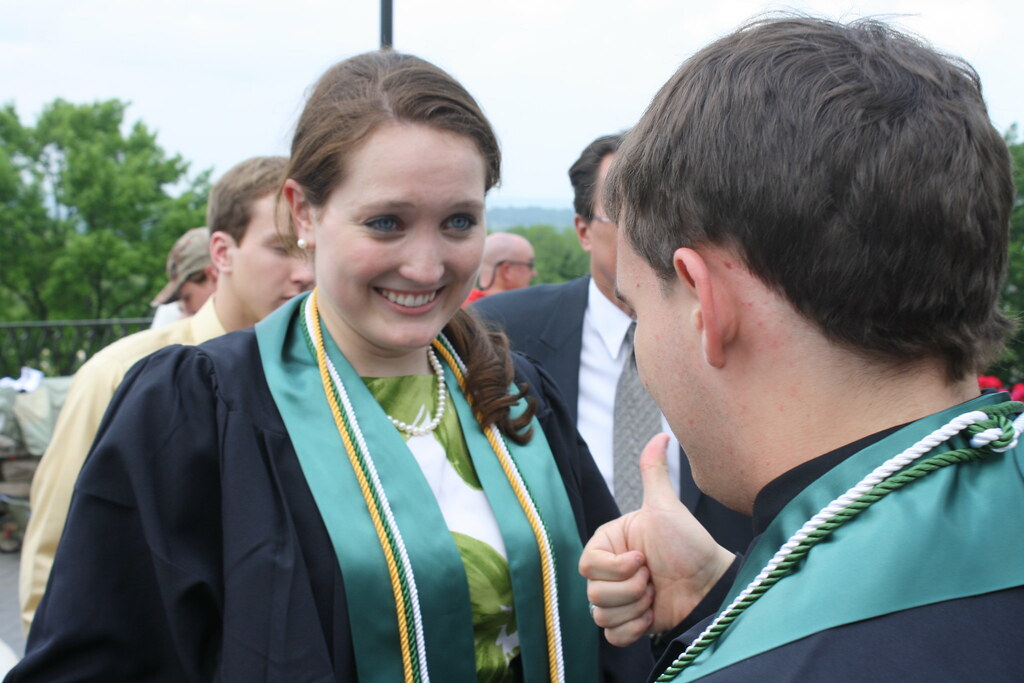 Gatton Academy Director Tim Gott shared his gratitude with attending faculty members for their role in making the program’s learning environment a challenging and rewarding experience for students.
Gatton Academy Director Tim Gott shared his gratitude with attending faculty members for their role in making the program’s learning environment a challenging and rewarding experience for students.
“Of the many things these students have pursued, one particular area of significance is the opportunity to conduct research,” Gott said. “Many of the faculty with us today have mentored these students as they explored new techniques in chemistry, environmental issues in geography and geology, unknown frontiers in astronomy and physics, potential medical breakthroughs in biology, life-enhancing concepts in engineering and unique applications in math and computer science. Those who engaged in these research projects have truly brought relevance to the rigor.”
Three out of five graduates participated in a facilitated research project with university faculty members. Research accomplishments include WKU’s second Department of Defense SMART scholarship recipient, a student presentation before the Keystone Center’s National Energy Board, and a DAAD RISE scholarship winner.
Anna Walter, a graduating senior from Burlington, reflected upon her experience as an Academy student and the potential she and her classmates have to affect global change.
“The Academy has given us the opportunities we need not only to succeed in our chosen fields but also to excel in them by providing that extra little push to go from ordinary to the extraordinary,” she said. “It is that little extra that distinguishes the leaders from the followers, the innovators from the reproducers and the great from the average.”
In pursuit of those academic and personal goals, three out of five graduates plan to attend Kentucky higher education institutions with 8 continuing their studies at WKU.
In the fall of 2010, representatives from the graduating class will attend 20 schools across the United States: Belmont University; Cornell University; Georgia Institute of Technology; Massachusetts Institute of Technology; Morehead State University; Mount Holyoke College; Princeton University; Purdue University; Rose-Hulman Institute of Technology; Stanford University; Transylvania University; Union University; University of Chicago; University of Delaware; University of Kentucky; University of Louisville; University of Tennessee, Knoxville; University of Washington; Vanderbilt University and Western Kentucky University.
Four-year scholarships totaling more than $10.3 million were offered to the graduating class, while more than $3.5 million in four-year scholarships were accepted.
Twelve members of the senior class were named Kentucky Governor’s Scholars. Ten members of the class were selected as National Merit finalists. In all, seniors completed a total of 1,948 hours of community service during their time at the Gatton Academy.
“These students have taken the most rigorous curriculum offered to any high school student in the nation,” Gott said. “They left the comfort of home and established a level of independence that will impact their lives forever. They have forged new friendships which will grow exponentially in the years to come. They have given themselves in community service throughout the state inspiring younger students, building new homes and expanding awareness of the opportunities in math and science. They will become the leaders of this great Commonwealth.”
Ryne Weiss, a graduating senior from Richmond, explained the role that students’ families, both genetic and created, had on their time as Academy students.
“This experience would not be possible if you didn’t have generous parents who would do the unthinkable and let you pursue the greatest academic opportunity available,” Weiss said. “Eventually, we will also see our Academy family again. They will be on the news, they will be on the cover of Nature, Popular Science or Time. We will see each other again and we will be proud, like family.”
Members of the Gatton Academy Class of 2010:
From Adair County: Jason Ludden
From Boone County: Cody Feldhaus, Forrest Simmons and Anna Walter
From Bourbon County: Jacob Haven
From Boyd County: Alex Naumann
From Bullitt County: Jennifer Connelly
From Carlisle County: Stephen King
From Christian County: Justin Jatczak and Taylor Doss
From Clark County: Sarah Pritchett
From Daviess County: Jacob Roberts
From Fayette County: Thomas Delomas and Rohith Palli
From Franklin County: Phillip Butler and Katherine Rush
From Grant County: Madison Liford
From Graves County: Manuel Cortez
From Greenup County: Michelle Compton and Leah Frazier
From Hardin County: Whitney Antle, Rebecca Morgan, Hunter Smith and Rebecca Brock
From Henry County: Ballard Metcalfe
From Jefferson County: Sean Stopher and Savannah Price
From Jessamine County: Emily Hall
From Kenton County: Jordan Jones, Sean Karlage and Megan Stulz
From LaRue County: Gretchen Fraze
From Laurel County: Jared Mink
From Lincoln County: Margaret Matheny
From Logan County: Elizabeth Nethaway
From Madison County: Ryne Weiss
From Martin County: James Goble
From McCracken County: Nash Dingman
From McCreary County: Elizabeth Singleton
From Mercer County: Holly Mitchell
From Monroe County: Lori Froedge
From Muhlenberg County: Kaitlin Oliver
From Owen County: Kayla Smith
From Pendleton County: Elaine Flynn
From Pike County: Amy Cordero
From Rowan County: Alexander Hare
From Simpson County: James Forshee
From Spencer County: Sarah Brown
From Warren County: Samuel Brown, Miles Cary and Thomas Choate
For more information, contact Corey Alderdice at (270) 745-6565.

